Resistance and Solidarity. The Left Volunteer Movement in the Russo-Ukrainian War
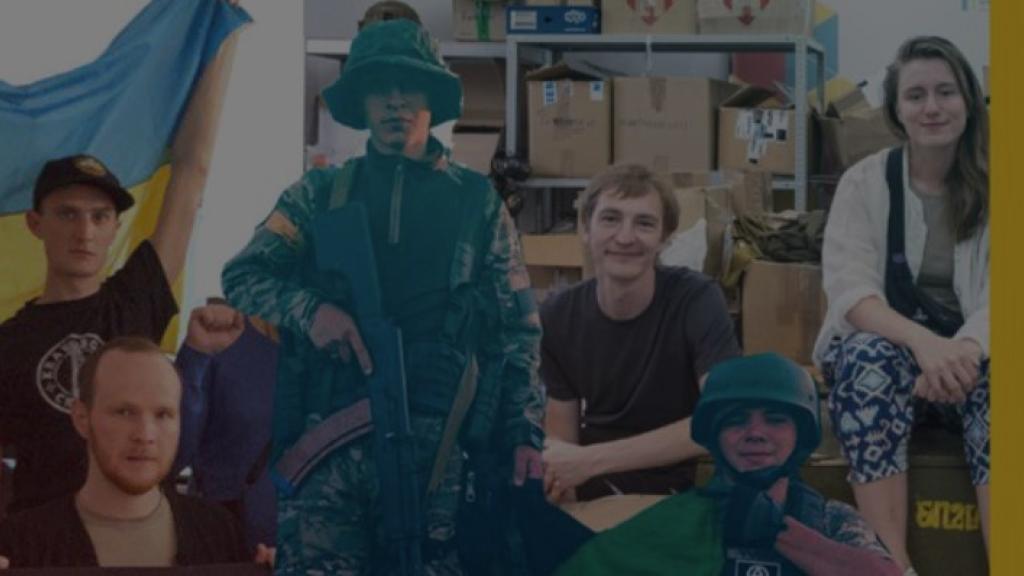
First published at Commons.
Before the full-scale war, the Ukrainian left movement was neither considered influential nor had a party or national representation, backboned by a strong community. However, the Russian invasion made leftists look for new contacts and approaches. Spokespeople of leftist and anarchist organizations elaborate on the experience of resistance during the round table Resistance and Solidarity: Ukrainian Leftists in the War with Russia.
How did the left adapt to the situation after the full-scale invasion of Russia?
The war shaped a completely different context for our activity. Often, the first challenge was to survive individually. Then comes survival at the organizational level: we needed restructuring to adapt to the wartime that defined new areas of activity.
Anastasia Chebotariova talks about such changes among left-wing feminists.
She is a member of the Feminist Lodge, a grassroots activist initiative engaged in the cultural and educational sphere. Also, their community provides humanitarian aid, primarily to female persons.
After February 24, helping with the basic needs in treatment, hygiene and nutrition became a priority for Feminist Lodge. The organization reformatted its youth cultural direction to organize humanitarian convoys, particularly to the temporarily occupied territories of the Kherson and Zaporizhzhia Oblasts. In such a way, it expanded the network of contacts with grassroots activists throughout Ukraine. Previously, Feminist Lodge worked with an audience already interested in feminism; however, with the beginning of a full-scale war, the organization encountered new voices among the recipients of humanitarian aid.
Anastasia recalls the reaction of a volunteer who delivered supplies to occupied Berdiansk [a city in Donbas – tr. note], “I thought feminists were into some nonsense, but now I see it’s far from the truth.”
She emphasizes the importance to stress feminist approaches to aid as they differ from the usual activities of large international funds preferring a hierarchic system, “It is important that our help goes along with our feminist values and principles. Thus, people will have a more positive association with the word “feminism.
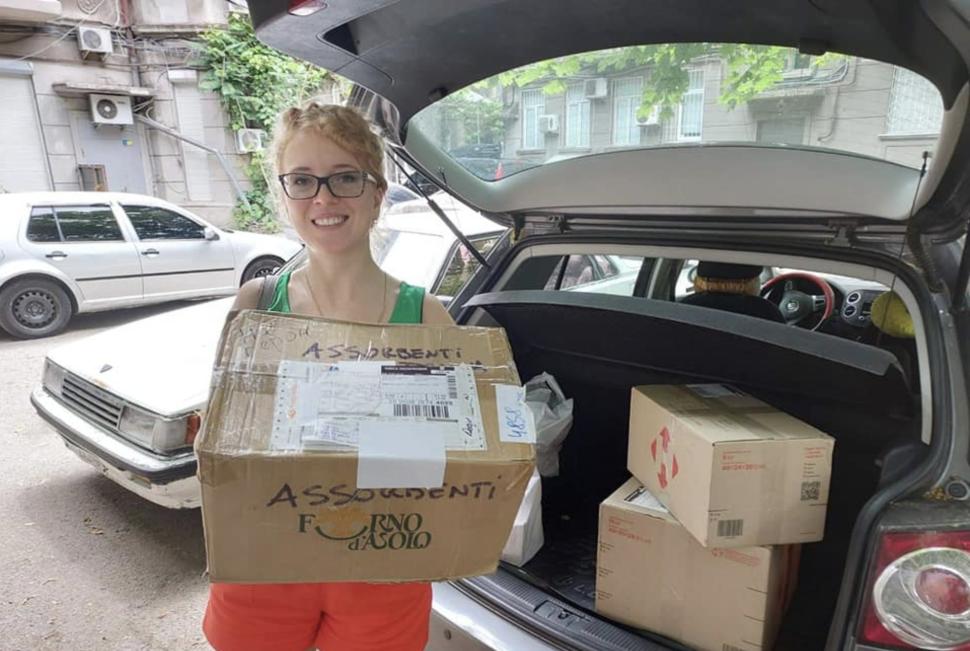
Maksym Shumakov talks about cooperation and opposition to neoliberal reforms.
Maksym is an activist of the socialist public organization Social Movement, a left-wing association aimed at creating a political party to represent the left in the Ukrainian political arena.
At the end of February, the very first goal of the organization was to overcome disorientation as the activists ended up in different regions and, therefore, circumstances. Their cooperation, communication, and mutual assistance came to the fore. It was important not only to maintain work efficiency but also to ensure the safety of the members.
Then, Social Movement focused on several areas: providing humanitarian aid, promoting a campaign to write off Ukraine's foreign debt, supporting the Ukrainian resistance on the international scene, and fighting against neoliberal reforms. As for the last direction, the organization actively provides legal assistance to workers in their struggle for labor rights.
The implementation of neoliberal policies and the state's impotence in fulfilling its social role formed a vacuum filled by decentralized cooperation. According to Maksym, almost all collective groups (people at the front, IDPs, students, workers) have already mastered the cooperation basics. Therefore, it is crucial to develop existing initiatives and connect them so as to gain solidarity. Hence, Social Movement holds lectures for IDPs, students, workers, and activists.
This May, Social Movement organized two conferences in Lviv. It was an important step to unify Ukrainian left-wing initiatives: in the political and media space and in the field of humanitarian aid. First, the conferences proved the subjectivity of the Ukrainian left and trade unions. Second, they helped to establish cooperation and communication in campaigns, humanitarian convoys, and media work.
Maksym stresses that with the war, usual forms of protest became ineffective. Thus, flash mobs, media work, and legal aid played a leading role in reacting to neoliberal reforms. For example, Social Movement held a flash mob called Don't Hit Me in the Back that drew attention to the threats posed by the new labor rights laws. Protests and media campaigns in new formats still allow to push the authorities and unite people.
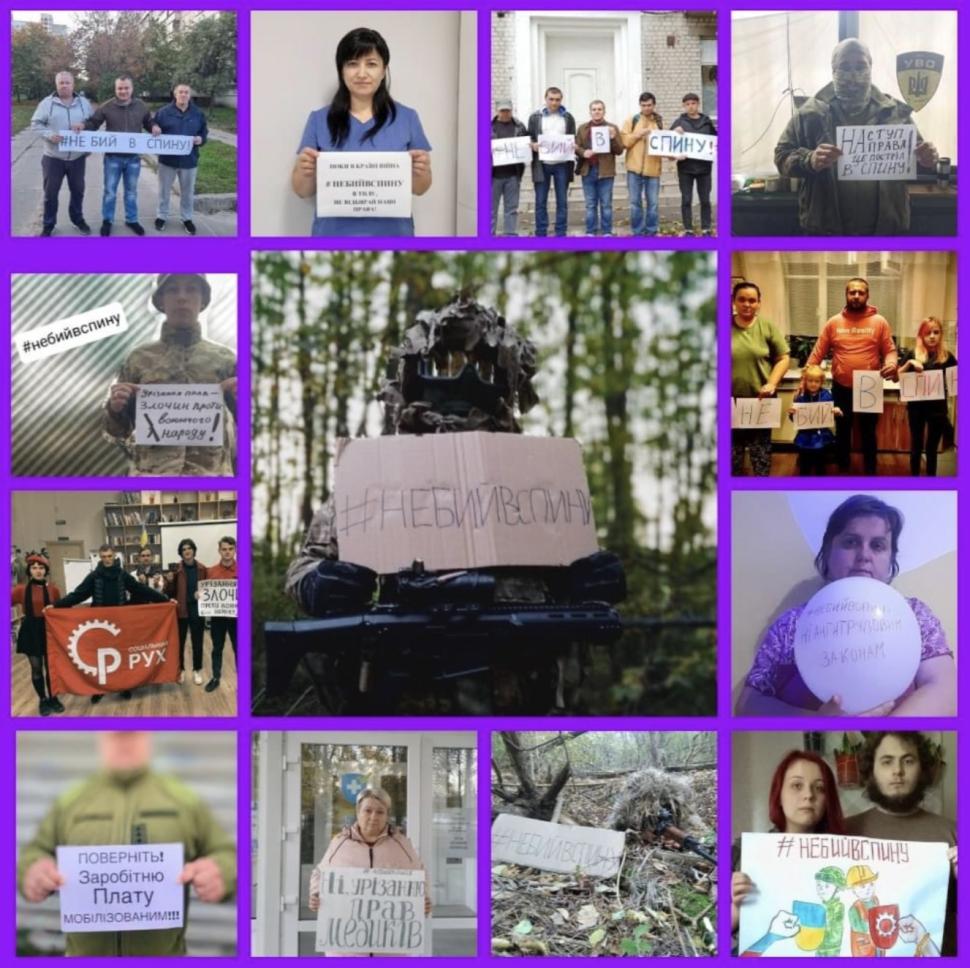
Anastasia Brezina elaborates on the relations between man, nature, and war.
Also, she talks about the activities of eco-anarchists.
Anastasia is an activist of Ecoplatform, a vegan-anarchist eco-organization that promotes principles of horizontality and evasion from anthropocentric ideology.
The main goal of Ecoplatform is to overcome anthropocentrism. As Anastasia states, this war, through crimes and destruction, showed the atrocities of humans toward nature.
Members of Ecoplatform faced the first war day in the queue to join Lviv Teroborona. According to Anastasia, female persons had trouble with this: at first, they were just ignored. That is why male members went to the front, and female activists started volunteering.
At the same time, Ecoplatform assisted Solidarity Collectives [an anti-authoritarian volunteer network – ed.] in logistics, storage, and sorting of humanitarian aid. Anastasia says they faced a surge of solidarity with locals: even a small team could quickly manage to send aid to hot spots.
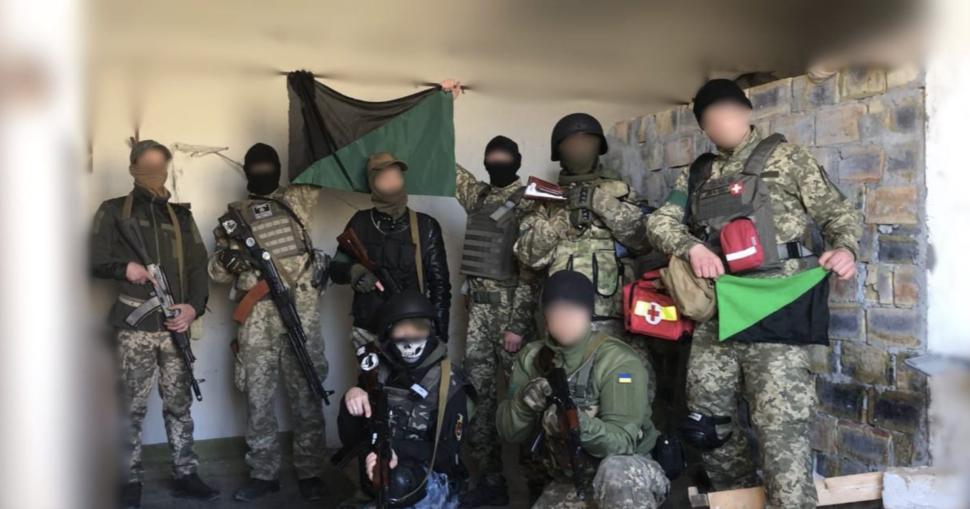
Various anarchist and vegan initiatives helped in building a strong communication network. Also, anarchists and vegans that join the Armed Forces of Ukraine foster greater visibility and destigmatization in society.
Activists of the Ecoplatform feel inspired by the idea of a grassroots mode of society; however, currently, they observe a common tendency to idealize the state and power structures.
Serhiy Movchan, a member of the anti-authoritarian volunteer network Solidarity Collectives, talks about its military and humanitarian activities.
The initiative originated in the network of anarchists, anti-fascists, and anti-authoritarian leftists a few weeks before the start of the full-scale war and was inseparable from the military association. Part of the members decided to create a unit in the Armed Forces of Ukraine, and another one - to engage in humanitarian activities that would provide for the anti-authoritarian leftists at the front.
Solidarity Collectives [at that time the initiative was called "Operation Solidarity"] began to assemble a new network and infrastructure. Over time, the directions expanded to providing humanitarian aid to civilians and engaging in media work. Activists began reaching out to trade unions, which usually did not get help from big funds.
Leftist organizations are trying to keep their identity amidst the diversity of new volunteer initiatives so that the sense of national unity won’t replace the organizations' political principles. All participants of the round table highlighted that the war creates a new space for the left, prospects for destigmatization, and strengthening the positions of LGBTQ+ activists, feminists, anarchists, and vegan activists. Helping people and fighting side by side in the army allows for strengthening the left authority and building new contacts. Activists hope this will become a good basis for post-war work and for defending social and economic rights in the future.
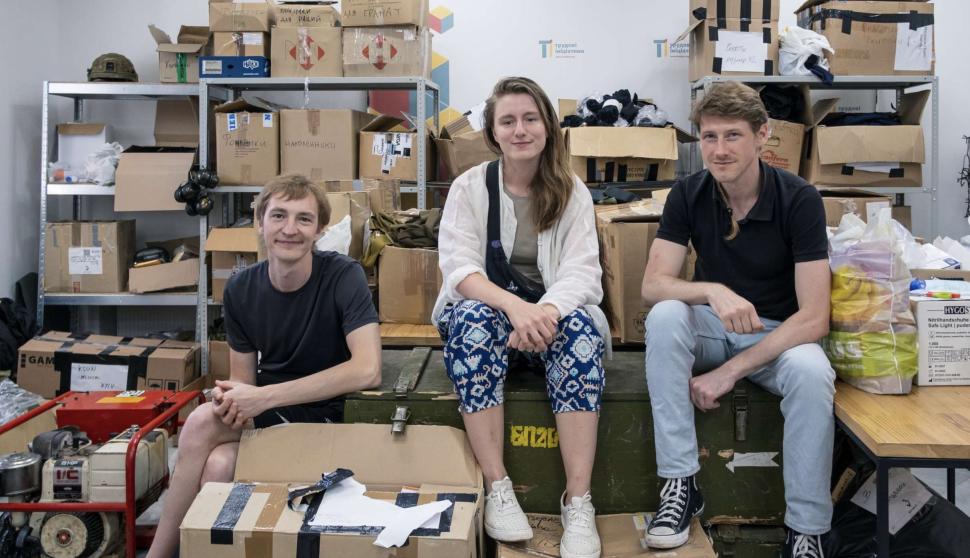
Ukrainian leftists vs abstract pacifism of the West. What is the left movement fighting against?
Many Ukrainian leftists orient towards the Western media, as Ukrainian ones are much more challenging due to the activities of the far right, as well as the fact that leftists tend to be associated with pro-Russian forces. According to the speakers, the reaction of the Western left and feminist communities creates obstacles for the Ukrainian left.
Some Western leftists and feminist activists have forgotten one of the most important rules: nothing about us without us. They publish numerous manifestos inviting no representatives of Ukrainian society. We hear calls to lay down arms, return to the Minsk agreements, and slander the Ukrainian leftists for “nationalism”... These things are often shaped like colonial and authoritarian relations: one side explains what the other should do, giving no effort to understand it.
As Anastasia Chebotariova points out, this is an issue of power distribution. The Ukrainian left movement found itself in a position where it is necessary to explain the situation over again, but often it seems like it is serving the international community. We can overcome it by recognizing common values and visions, not competition or opponents. For example, Kurdish feminists understand that not everyone has the privilege of non-violent resistance, but everyone must build relationships based on the equality principle.
Anastasia explains why she does not cooperate with the Russian anti-war feminist resistance that expresses solidarity with Ukrainians. Although they do not influence the war much, their activities have attracted significant attention in the West. The thing is that it is happening at the expense of Ukrainian initiatives becoming less visible. It is more difficult for the West to understand the resistance of the colonized, so they often prefer to give voice to people from empires. Supporting such initiatives only legitimizes spatial inequality and makes Ukrainian feminism less visible.
We are interested in the decolonization of empires (and relations). Now, Ukrainians are fighting against an empire. Leftists and anarchists support movements in Central Asia and other colonized regions because decolonization is the future we can fight for together, not only in the context of the Russo-Ukrainian war.
Answering questions about left-wing pacifism and the call to “put down weapons,” Serhiy Movchan emphasized that “practice is the criterion of truth.” Some statements of the “anti-war movement” seem good in theory but are far from practice. One cannot put an equal sign (as some leftists in the West like to do) between two “bourgeois” countries where the working class is not in power. After all, there is a big contrast between Ukraine and Russia regarding the democracy level and opportunities for independent organizations.
Today, the very existence of the Ukrainians is under threat. The freedoms of Ukrainian activists would be impossible under the Russian occupation. For us, this war is defensive. One needs to fight against the invader, not against its opposers.